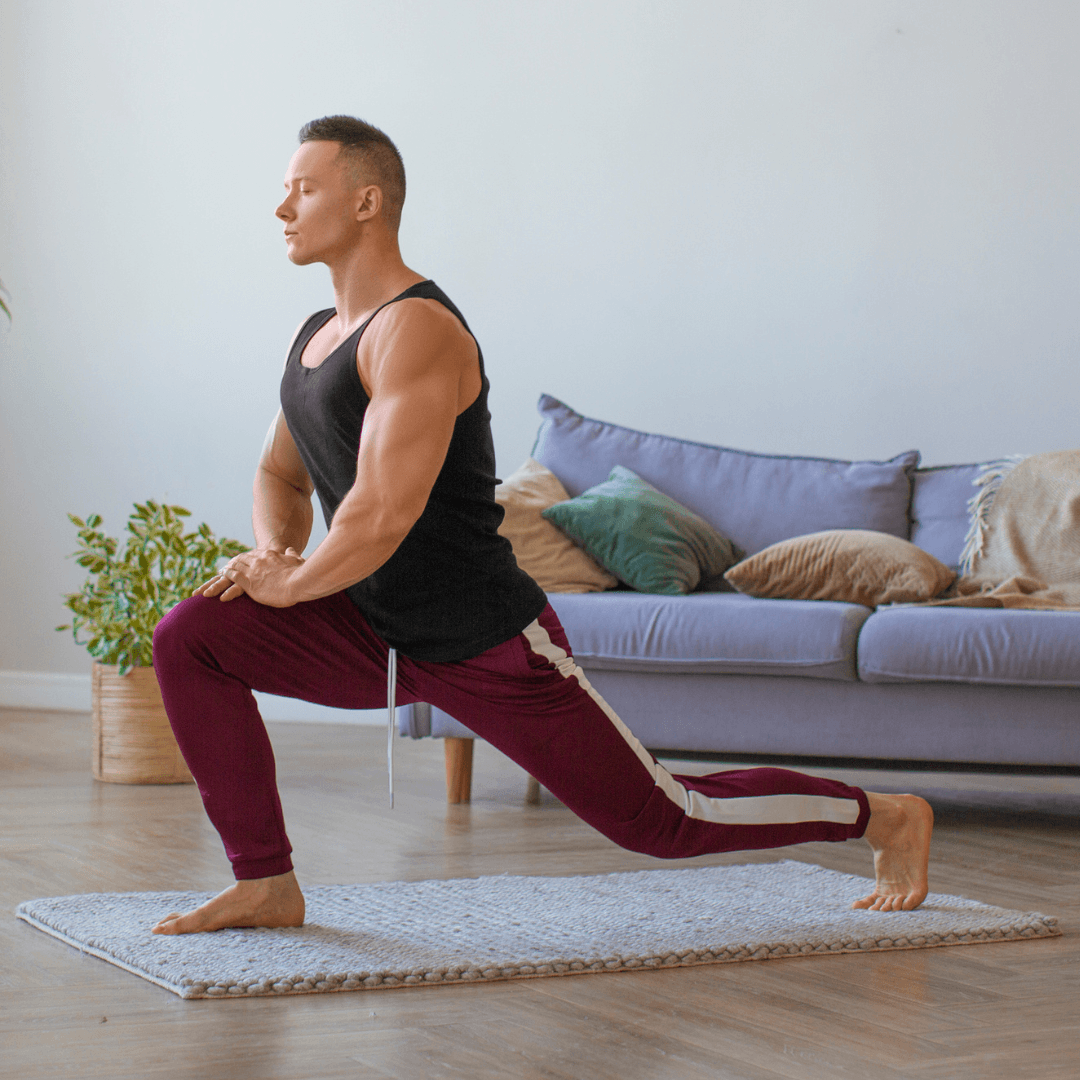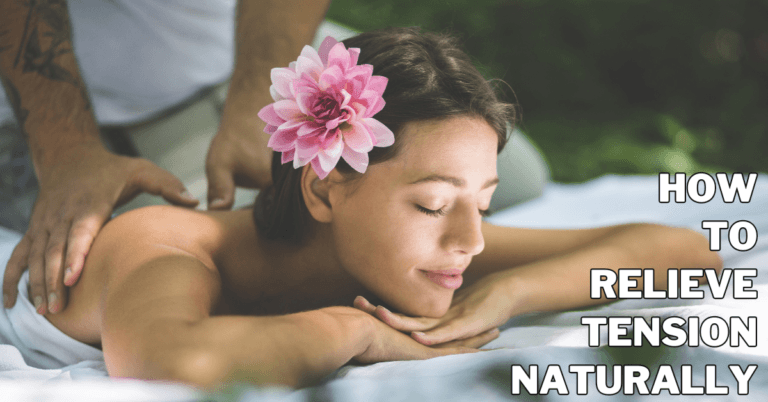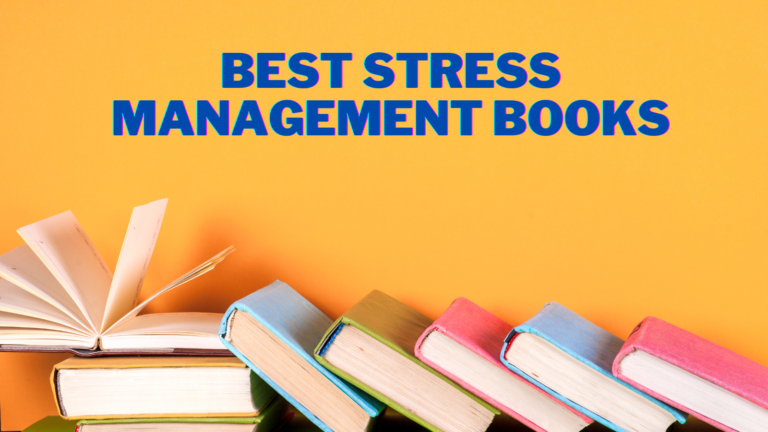Exploring Various Stress Management Techniques
Exploring Various Stress Management Techniques
Stress is a constant companion in today's busy world, affecting our general quality of life, mental and physical health, and both.
Exploring and implementing efficient stress management techniques is essential as we navigate the many challenges.
This article will be a thorough guide to help people deal with life's challenges, illuminating the range of stress management strategies.
We will delve into the art of mindfulness and meditation, uncover the rejuvenating benefits of physical exercise, explore the therapeutic power of creative pursuits, and examine lifestyle adjustments that promote resilience.
Understanding that stress manifests uniquely for each individual, this exploration aims to provide readers with a nuanced understanding of the available tools, encouraging a personalized approach to stress management.
Importance Of Stress Management Techniques
Modern life is fast-paced, and stress affects people of all ages and backgrounds. The significance of stress management strategies cannot be emphasized because they are essential for maintaining and improving our mental and physical health.
Being able to handle stress well becomes necessary for living a happy and balanced life as we work through the difficulties of relationships, work, and personal struggles.
You should keep in mind the following reasons why stress management techniques are necessary:
1. Physical Health
Learning stress management techniques is key to good physical health. Extended periods of stress have been associated with several health problems, including immune system weakness, digestive disorders, and cardiovascular problems.
Implementing stress-reducing practices can contribute to better overall health and a stronger immune response.
2. Mental Well-Being
Effective stress management is crucial for mental health. Chronic stress is associated with conditions like anxiety and depression.
Engaging in stress-relief practices can act as a preventative measure and aid in managing mental health challenges.
3. Cognitive Function
Stress can impair cognitive functions, including concentration, memory, and decision-making.
Stress management techniques help improve cognitive function by reducing the mental fog and enhancing clarity, allowing individuals to think more clearly and make better decisions.
4. Emotional Resilience
Stress management fosters emotional resilience, enabling individuals to cope with life's challenges more effectively.
It equips individuals with the tools to regulate emotions, reducing the likelihood of becoming overwhelmed or succumbing to chronic emotional strain.
5. Enhanced Productivity
Stress management is crucial for sustaining productivity in professional settings. Individuals who use stress-relieving techniques foster a productive and positive work environment because they are more flexible, inventive, and better able to manage obstacles at work.
6. Improved Relationships
Managing stress positively impacts interpersonal relationships. When less stressed, individuals tend to communicate more effectively, handle conflicts more constructively, and maintain healthier connections with others.
7. Quality Of Sleep
Chronic stress often leads to sleep disturbances. Stress management techniques, such as relaxation exercises, can improve sleep quality, ensuring individuals get the rest they need for overall well-being.
8. Long-Term Health Benefits
Consistent application of stress management techniques has been linked to long-term health benefits.
By reducing the impact of chronic stress, individuals may experience a lower risk of developing stress-related health conditions over time.
9. Self-Care And Personal Growth
Stress management is essential to self-care. Engaging in stress-relief practices fosters personal growth by encouraging individuals to prioritize their well-being and develop a more profound understanding of themselves.
In summary, stress management techniques are multi-faceted, impacting physical health, mental well-being, cognitive function, emotional resilience, productivity, relationships, sleep, and contributing to long-term health benefits and personal growth.
Prioritizing stress management is a holistic approach to living a healthier and more fulfilling life.
Introducing Various Stress Management Techniques
Effective stress management is essential for maintaining overall well-being in the face of life's challenges.
Here are various stress management techniques that individuals can explore and incorporate into their daily lives:

1. Mindfulness Meditation
Mindfulness meditation, rooted in ancient contemplative traditions, has emerged as a powerful and widely embraced practice in the modern world for its profound impact on stress reduction and overall well-being.
At its core, mindfulness meditation invites individuals to cultivate a heightened awareness of the present moment, untethered from judgment or attachment.
The practice typically begins with finding a quiet and comfortable space. Practitioners direct their attention to their breath, the natural and rhythmic anchor to the present, whether sitting or lying down.
The breath becomes a focal point, a reminder to guide wandering thoughts back to the current moment gently.
As the practice deepens, mindfulness meditation encourages non-judgmental observation of thoughts and sensations.
Rather than suppressing or engaging with thoughts, individuals learn to witness them with detached curiosity. This process fosters a profound sense of self-awareness and understanding.
Scientific studies have demonstrated the efficacy of mindfulness meditation in reducing stress. By actively engaging with the present and letting go of the grip of past regrets or future anxieties, practitioners create a mental space for relaxation.
The meditative state triggers the activation of the body's relaxation response, leading to decreased stress hormones and an overall sense of calm.

2. Deep Breathing Exercises
Deep breathing exercises stand among the various stress management techniques, providing a simple yet powerful method to harness the body's natural relaxation response and promote overall well-being.
These techniques center around deliberate and controlled inhalation and exhalation, influencing the autonomic nervous system to shift from the stress-inducing sympathetic to the calming parasympathetic mode.
Diaphragmatic breathing, a foundational deep breathing technique, emphasizes the engagement of the diaphragm rather than shallow chest breathing.
Practitioners begin by finding a comfortable posture and placing one hand on the chest and the other on the abdomen. Inhaling slowly through the nose, they focus on expanding the diaphragm, causing the abdomen to rise.
The exhalation is then performed slowly and completely through pursed lips, allowing the abdomen to fall.
This intentional and mindful approach to breathing enhances oxygen exchange, reduces the heart rate, and lowers blood pressure.
The ensuing nervous system relaxation can alleviate muscle tension, improve cognitive clarity, and provide an immediate sense of calm.
Incorporating deep breathing exercises into daily routines offers a portable and accessible means to counteract the effects of stress, promoting a harmonious balance between mind and body.

3. Progressive Muscle Relaxation (PMR)
Progressive Muscle Relaxation (PMR) is a structured and effective technique for alleviating physical tension and inducing deep relaxation.
Developed by physician Edmund Jacobson in the early 20th century, PMR involves a deliberate sequence of tensing and progressively releasing specific muscle groups throughout the body.
To practice PMR, individuals typically find a quiet space and assume a comfortable position, often starting with deep breaths to initiate relaxation.
The process then involves sequentially tensing and holding specific muscle groups, such as the hands, arms, shoulders, and facial muscles, for several seconds before releasing the tension completely.
The release phase focuses on the sensations of relaxation and the contrast between tension and release.
This systematic progression through the body helps individuals heighten their awareness of physical sensations, promoting mindfulness and directing attention away from stressors.
As the practice unfolds, the accumulated effect is a profound sense of calmness, reduced muscle tension, and overall relaxation.
Incorporating PMR into a routine can contribute to stress management, improved sleep quality, and a heightened awareness of the mind-body connection, offering a valuable tool for cultivating holistic well-being.

4. Yoga And Tai Chi
Yoga and Tai Chi stand as ancient mind-body practices among the various stress management techniques, renowned for their holistic approach to enhancing physical and mental well-being through the integration of postures, controlled breathing, and meditation.
Yoga encompasses diverse practices, from dynamic vinyasa flows to gentle therapeutic sessions, each emphasizing the integration of physical postures (asanas), controlled breathing (pranayama), and meditation.
In yoga, the deliberate connection between movement and breath cultivates mindfulness, fostering a sense of presence and tranquillity.
The physical postures, often designed to enhance flexibility and strength, promote a harmonious balance between body and mind.
Additionally, the meditative aspect of yoga encourages stress reduction and emotional well-being.
Tai Chi, originating from Chinese martial arts, is characterized by slow, flowing movements and a focus on breath control.
Often called “meditation in motion,” Tai Chi promotes balance, coordination, and flexibility. The gentle, rhythmic nature of Tai Chi fosters relaxation, reduces stress, and enhances mental clarity.
Both practices share a common thread in their emphasis on the mind-body connection. Scientific studies support their positive effects, showing that regular yoga and Tai Chi engagement can improve overall well-being, reduce stress levels, and increase resilience to life's challenges.
Integrating these practices into daily life offers a holistic approach to health, promoting physical vitality and mental serenity.

5. Exercise
Regular physical activity is a key component of any effort to reduce stress and improve general well-being.
Beyond the physical realm, exercise has a profoundly transformative effect on mental and emotional health.
Endorphins, sometimes known as the body's natural mood enhancers, are released when the body moves.
Positive emotions are elicited, and pain perception is reduced by these neurotransmitters' interactions with brain receptors.
The stress-relieving benefits of exercise are multifaceted. Beyond endorphin release, physical activity is a powerful outlet for pent-up tension, allowing the body to release and alleviate stress.
Moreover, regular exercise improves sleep patterns, a crucial component of effective stress management.
Quality sleep enables the body and mind to rejuvenate, promoting mental clarity and emotional resilience.
Whether it's cardiovascular exercises like running or cycling, strength training, or the mindful movements of activities like yoga, the key lies in finding an activity that brings joy and can be sustained over time.
The cumulative impact of regular physical activity extends beyond immediate stress relief, contributing to enhanced overall health and a more resilient approach to life's challenges.

6. Journaling
As one of the various stress management techniques, journaling stands as a time-honoured therapeutic practice, offering individuals a profound avenue to navigate the complexities of their inner world and embark on a journey of self-discovery through self-expression.
By putting pen to paper, individuals embark on a journey of self-discovery, unravelling the intricacies of their thoughts, emotions, and stressors.
The journaling process is inherently reflective, inviting individuals to delve into the depths of their experiences and gain insights into the patterns and triggers of stress.
Individuals feel liberation by externalizing thoughts onto the page as if unburdening their minds. Sharing one's internal landscape fosters self-awareness and promotes emotional processing and clarity.
Moreover, journaling serves as a tangible record of personal growth and resilience. Reading through past entries allows individuals to witness their evolution, recognize patterns of triumph over challenges, and identify coping strategies that have proven effective.
The therapeutic benefits of journaling extend beyond stress management, contributing to improved mental health, enhanced emotional intelligence, and a greater sense of self-empowerment.
As a versatile tool, journaling accommodates various styles, from freeform expression to structured prompts, making it accessible to individuals seeking a personalized and cathartic means of self-reflection.

7. Social Connections
Social connections stand as a fundamental pillar in the intricate tapestry of human well-being, offering a robust buffer against the impact of stress.
The bonds forged with friends and family create a web of emotional support, fostering a sense of belonging and security.
Spending quality time with loved ones cultivates a profound network of relationships that can serve as a vital resource during times of stress.
Social interaction causes the release of oxytocin, also known as the “bonding hormone,” which promotes emotions of trust and closeness.
In turn, this hormonal reaction mitigates the physiological impacts of stress, encouraging emotional forbearance and a sense of calm.
Sharing experiences, whether joyous or challenging, within a supportive social circle provides a platform for expression and understanding.
Conversations with trusted individuals offer perspectives, advice, and, often, a shared sense of humanity, reinforcing that one is not alone in facing life's trials.
In times of stress, the power of social connection lies not only in the emotional support provided but also in the knowledge that a network of caring individuals stands ready to offer solace, encouragement, and companionship.
As an indispensable facet of holistic well-being, nurturing social connections remains a timeless and effective strategy for navigating life's challenges with resilience and a sense of shared humanity.

8. Time Management
Time management is a pivotal skill among the various stress management techniques, providing a structured approach to navigating daily life and fostering a sense of order and accomplishment amidst competing priorities and tasks.
Being overwhelmed often arises when faced with numerous tasks and competing priorities. Strategic time management provides a framework to regain control, fostering a sense of order and accomplishment.
Breaking tasks into smaller, manageable steps is a key tenet of effective time management. This approach transforms daunting projects into a series of achievable milestones, making the workload more digestible and less intimidating.
Each completed step contributes to a sense of progress, motivating individuals to move forward confidently.
Prioritization is another cornerstone of successful time management. Prioritizing tasks helps people focus their attention and energy more effectively.
This allows them to take care of important obligations before moving on to less urgent ones. This enhances productivity and diminishes the sense of chaos that often accompanies a lack of structure.
Effective time management is a dynamic process that involves setting realistic goals, utilizing tools like to-do lists and calendars, and learning to delegate when appropriate.
Strategic time management becomes a potent antidote to stress by instilling a sense of order and purpose, providing individuals with the tools to navigate life's complexities efficiently and composure.

9. Laughter Therapy
Laughter therapy, also known as humour therapy, harnesses the inherent healing power of laughter to promote physical and emotional well-being.
Endorphins, the body's natural feel-good chemicals that induce instant relaxation and happiness, are released when you laugh.
Engaging in laughter therapy can take various forms, from watching a lighthearted movie or stand-up comedy to participating in laughter yoga sessions or spending time with people who radiate positivity and humour.
Shared laughter within a group setting strengthens social bonds and creates a collective sense of happiness, enhancing the therapeutic effects.
The physiological benefits of laughter extend beyond the immediate moment, contributing to stress reduction by lowering cortisol levels associated with stress.
Also, laughter increases blood flow and improves cardiovascular health, providing immediate and long-term positive effects on the body.
Laughter therapy embraces the philosophy that laughter is an integral part of the human experience, capable of transcending cultural and linguistic boundaries.
Incorporating moments of genuine laughter into daily life serves as a natural stress reliever, promoting emotional resilience and contributing to an overall sense of well-being.

10. Aromatherapy
Aromatherapy, within the realm of various stress management techniques, utilizes aromatic plant extracts to provide a sensory journey that promotes relaxation, stress relief, and overall well-being, with essential oils like lavender, chamomile, and eucalyptus playing a central role in this ancient practice.
Essential oils derived from plants like lavender, chamomile, and eucalyptus are renowned for their calming properties, which are central to aromatherapy.
The application of aromatherapy is diverse, often involving using essential oils in diffusers, inhalers, or through massage.
The brain's limbic system, linked to emotions and memory, receives signals from inhaling these aromatic compounds, stimulating the olfactory system. As a result, stress levels and mood are significantly impacted.
Lavender, known for its soothing properties, is frequently used to alleviate anxiety and induce relaxation.
Chamomile offers a gentle, calming scent, while eucalyptus is invigorating and promotes a sense of clarity.
Creating a soothing environment through aromatherapy involves diffusing essential oils or lighting scented candles.
The flickering flame of a candle adds an element of visual relaxation. Whether incorporated into a self-care routine or complementing other stress management practices, aromatherapy provides a multisensory approach to cultivating tranquillity and balance in daily life.
Conclusion
In the tapestry of modern life, woven with its complexities and challenges, the significance of stress management techniques emerges as a guiding thread toward a balanced and resilient existence.
Each technique offers a unique entry point to self-care, providing individuals with a toolkit to navigate the ebb and flow of stress.
Whether through the profound stillness of meditation, the refreshing embrace of physical activity, or the uplifting notes of laughter, the common thread is empowerment—the power to influence one's state of being.
Embracing the diversity of various stress management techniques becomes a testament to the proactive cultivation of a fulfilling and mindful life, guiding individuals toward resilience, self-discovery, and a profound connection to tranquillity amidst life's fluctuations.
By embracing the diversity of these approaches, individuals embark on a journey toward resilience, self-discovery, and a profound connection to the ever-present possibility of tranquillity amidst life's fluctuations.
In the pursuit of balance, these techniques serve as steadfast companions, offering solace and empowerment on the path to holistic well-being.
I trust you enjoyed this article about Exploring Various Stress Management Techniques. Please stay tuned for more blog posts to come shortly.
JeannetteZ
>>>Please click here to read my all-inclusive article about Lessons That Will Teach You All About Stress<<<
>>>Are you interested in Natural Healing And Stress Relief through Herbs? Please click here for my #1 Recommendation<<<
Disclosure
This post may contain affiliate links. I earn from qualifying purchases as an Amazon Associate and other affiliate programs. Please read my full affiliate disclosure.
Your Opinion Is Important To Me
Thoughts? Ideas? Questions? I would love to hear from you. Please leave me your questions, experiences, and remarks about Exploring Various Stress Management Techniques in the comments section below. You can also reach me by email at Jeannette@Close-To-Nature.org.
Disclosure
This post may contain affiliate links. I earn from qualifying purchases as an Amazon Associate and other affiliate programs. Please read my full affiliate disclosure.
You might also enjoy these blog posts:
What Are Negative Effects Of Stress?
Is Yoga Good For Stress Relief?
10 Best Stress-Relieving Plants For Your Office
10 Best Stress-Relieving Plants For Your Home
Spirituality And Stress Relief








